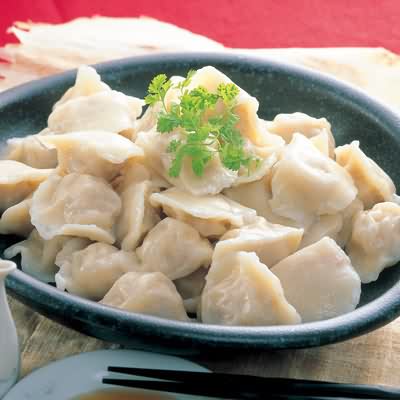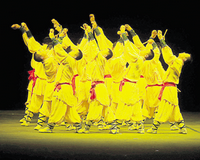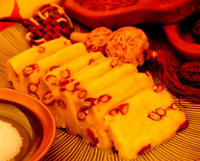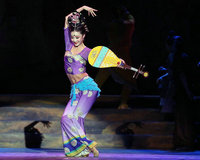
Now, with so many people observing the day by making and eating dumplings, or "Jiao Zi", we thought it would be appropriate to tell you the origin of the custom. It all begins with Zhang Zhongjing, the man from Chinese history known as the "Medicine Saint."
Zhang Zhongjing lived during the Eastern Han Dynasty 1800 years ago. Reportedly, Zhang noticed that many people's ears were frostbitten when he returned to his hometown one winter. He decided to wrap mutton, chilli and some warming medicinal herbs in dough skin. Folding them into the shape of an ear, he boiled them in water before giving them to the poor.
 |
Wang Lingxiang, doctor, said, "All the materials used in Zhang's recipe could help warm the body, promote the blood flow and then thaw the cold ears. The dumplings also had a wonderful taste so they were well received by the people."
This food was originally called "Jiao'er" for its shape, and later the name slowly became Jiaozi. Zhang used to distribute them from the day of Winter Solstice to New Year's Eve, when the villagers had fully recovered from their illness.
Today, Jiaozi is still a must in winter in most parts of northern China, especially during the Spring Festival. No words can precisely describe Chinese people's affection for dumplings, as the food has already become a symbol of home and warmth.
We recommend:
 |
 |
 |
| Kung fu reality check | Mouthwatering organic delicacy | Chinese classic dance drama hits Frankfurt stage |
Link : | China Daily | Chinaculture.org |